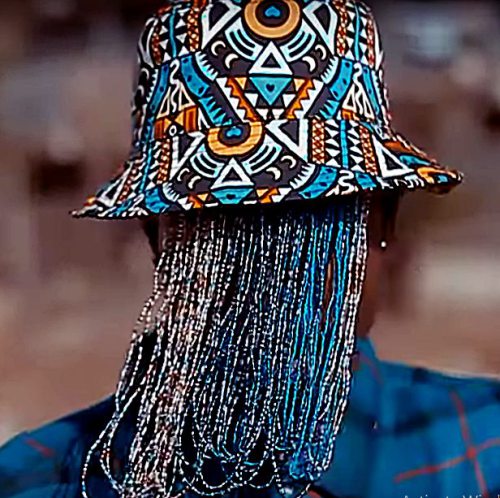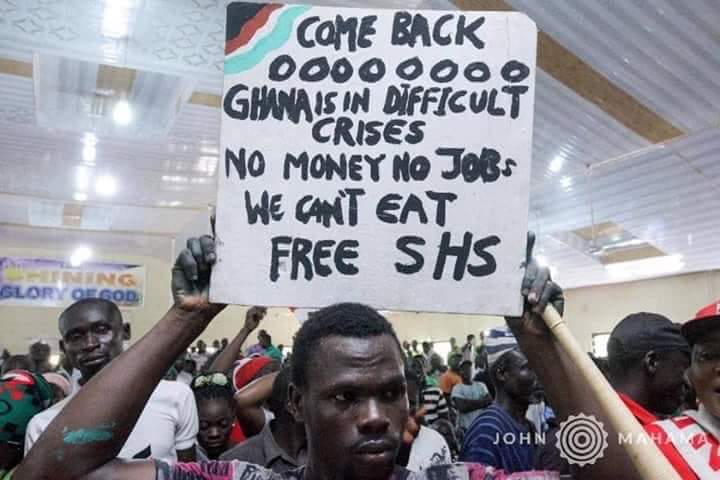
Image/Graphic credit: watsuptek
“We know what is good for you”: Ageism and Decision-making in Ghanaian Universities
Do you want to know a very popular Akan proverb? “You are but a child, when you see the eye of a crab, you think it is a stick”.
Years ago, Ghanaian universities were the hotbed of anti-government protests and students were continually met with violent force and severe intimidation. Beyond occasionally shutting down these universities, however, governments were unable to break the spirit of protest and political consciousness that defined these institutions. Enter democracy in 1992 and the gradual removal of barriers to press freedom and the booming of private media entities. University students were gradually pushed into the background and focused more on issues that directly affected them as students as opposed to national issues. This gradually led to divisions in the campus front as the university administration (mistakenly seen as all senior members/faculty) and junior members settled into a semi-permanent state of diametrically opposed entities.
Student activism was thus directed inwards and before long university managements began to institute restrictive regimes and use private and state security. Of course, we are told these private ‘security’ guards are to protect the universities from external threats but considering that in the two largest universities they were instituted on the back of student agitations, these guards tame the students and protect university management when called upon. Unsurprisingly, student independence in the running of their common rooms, residences and Unions were gradually eroded in a bid to eliminate dissent and control student action.
In the 2000s, as partisanship in Ghanaian politics deepened, university campuses welcomed the proliferation of political party youth groups on campuses and before long, student leadership contests reflected the national contestations between the two major political parties. Student politicians became stooges of national politicians. This further undermined student activism as the student body split into partisan camps and united protests against government inaction/actions gradually faded away.
Emboldened by this turn of events, university administrators have only gotten increasingly authoritarian in their management of students. For one thing, all funds of student unions and associations have been centralized and are controlled by university management in Legon and Kumasi. At the University of Ghana, expenditure by the SRC has to be signed off on by the Dean of Students. In 2011, the University of Ghana management went even further by setting a 3.0 cut off eligibility criteria for student union positions. While yours truly who was a student there at the time supported this move, I have since come to realize how much of an intrusive and unprincipled action it was. Not only did this regulation undermine the independence of the student union and the rights of students to internal self determination and decision making, but it also crippled the unions by creating the impression that student leadership was a negative drag on academic work. At the University of Ghana today, a number of candidates are running unopposed for student leadership positions (if anybody runs at all). It has marked a gradual descent into increased apathy and diminished political consciousness within the student population.
All these feed into and take their source from the culture of mostly old men deliberately truncating the voice of the young and imposing their preferences and opinions on them. I found the sight of Ghanaian TV talk show host, Paul Adom Okyere gleefully talking down to the young Public Relations Officer of the KNUST SRC very disturbing. Here was one of the ‘elite’, the ‘adult’, the ‘experienced’ quite clearly mounting the high table and lecturing on how students should resist. Paul drew on his experiences as a university student about two decades ago and suggested how the 2018 students should have burnt old tyres (never mind the pollution from the poisonous fumes) “like WE did” and called a press conference (that would neither be attended nor reported by the media anyway based on experience). Another enduring move by our ‘adults’ is to throw in the “peace loving Ghanaian” narrative in the face of dissent. Well, peace is not merely the absence of violence. Peace and in this sense, non-resistance allows the elite to perpetuate gross abuses and violence using state institutions to legitimize their actions while policing the responses of the oppressed.
The challenge we face at this moment has historical antecedents, understanding of which demands that we begin a critical conversation on the space we create for young people to engage in crucial public deliberation. So you have a structure that restricts independence of thought, removes legitimate means of expression, breaks down lawful channels of seeking redress and completely ignores the input of its largest constituency and yet strangely expresses surprise when these long- suffering constituents resort to the most base forms of engagement to obtain some relief. You deny them the right of association, right to assembly, freedom of movement, freedom of expression, dignity, and self-determination, and expect sanitized responses? This hypocrisy is untenable and permeates not just the University environment but almost all walks of life. Government ministers have not been spared the indignity of abuse and disrespect on mere account of their youth. The ‘Adults’ have used their advanced age and experience as an excuse to suppress dissent and justify noxious behavior. For a country with 57% of the population under the age of 25 and a median age of 21, we cannot afford to continue on this trajectory. Recent incidents are the warning rumbles of an impending earthquake, evasive maneuvers are a necessity.
Another popular Akan proverb is: “what the elder can see while seated, the child cannot while perched on a tree”.

by Glenn Norgbey
LSE





